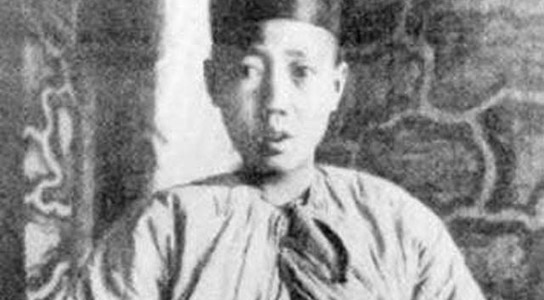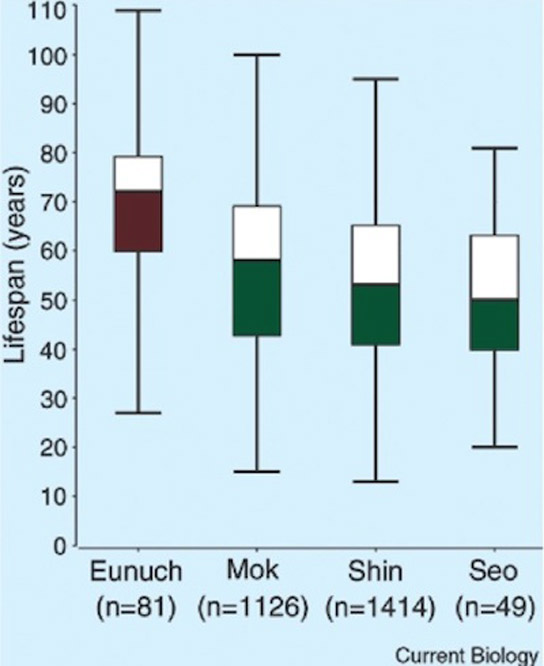
Korean eunuch
There are many instances in the animal world where males have shorter lifespans than females, which scientists attribute to the deleterious effects of testosterone. However, historical scientists who have been looking at records of Korean eunuchs castrated during boyhood have now discovered that they lived considerably longer.
The scientists published their findings in the journal Current Biology. The study supports the idea that male sex hormones decrease the lifespan of men. Animal studies have led scientists to suggest that evolution favored males who invest their energies in youthful reproduction, which leaves them less fit later in life.

Lifespan of Korean eunuchs and normal men. Boxes encompass the 25th–75th percentile of the data, with the median shown as a solid horizontal line. Credit: Min et al./Current Biology
This could be mediated by testosterone, which seems to also have an immune system-weakening effect. It is unknown whether increased testosterone or other male-centric traits are linked to shorter lifespans in humans. Women tend to live longer than men, but there could be many reasons for this, including the longevity-enhancing effect of estrogen and the biological imperative that older females are needed to protect their adult offspring.
Evidence from castrated men is somewhat limited. The Korean historical records range from the 14th to the early 20th century. The eunuchs were used as servants by the Korean royalty. The researchers calculated the lifespan of 81 eunuchs, who lived an average of 70 years. Normal males from three families with a comparable social status lived an average of 56 years.
There are even instances of eunuchs living more than 100 years, at a far higher number than expected, even today. The current centenarian incidence is one in 3,500 in Japan and one in 4,400 in the USA. The incidence in the Korean eunuch of centenarians is 30 times higher.
Other studies of eunuchs in other cultures would be helpful to understand aging and reproduction in humans.
Reference: “The lifespan of Korean eunuchs” by Kyung-Jin Min, Cheol-Koo Lee and Han-Nam Park, 25 September 2012, Current Biology.
DOI: 10.1016/j.cub.2012.06.036









that’s cool. i’m gonna get castrated to live long now.